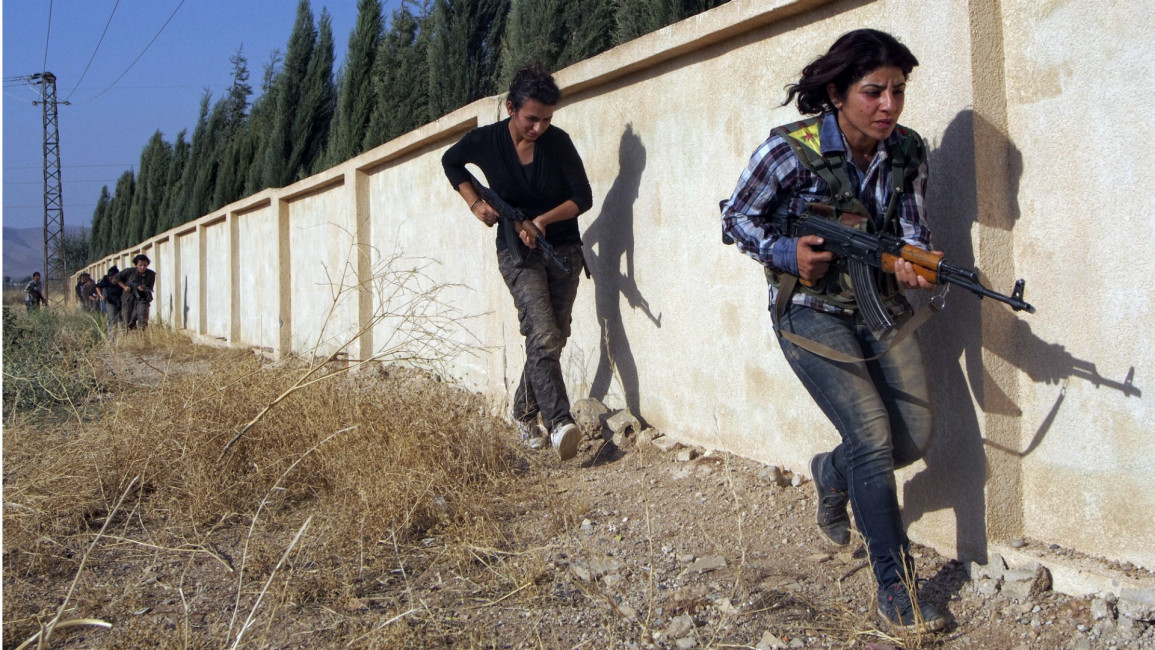
Western Kurdistan: a model for Middle East democracy
Dramatic changes are quietly taking place in northeast Syria, where the Kurdish fighters are battling militants from the Islamic State group.
Away from the spotlight of the media, the Syrian Kurds have carved out their own autonomous region which they call Western Kurdistan, or "Rojava" - western in Kurdish.
They have seized a chance to take advantage of the vacuum left by the withdrawal of Syrian regime soldiers pulled in mid-2012.
Rojava was declared a self-governing region in November 2013. From that point onwards the Kurds established an inclusive society in which all ethnicities and religions were involved - Kurdish and Arab, Syriac, Yazidi, Sunni, Alawi and Shia - a society uniquely based on trust.
What is more, it champions an inclusive policy towards women. A quota system for all governing committees must have 40 percent women, and this figure will eventually rise to 50 percent.
Rojava consists of the three non-contiguous cantons of Afrin, Kobane and Jezira.
The head of Rojava and of Syria's Kurds is the softly spoken Saleh Muslim, who founded the PYD, the Syrian Kurdish Democratic Union Party, in 2003 in protest at the regime's poor treatment of Syrian Kurds.
The PYD is affiliated to the PKK - Turkey's main Kurdish resistance party - and so the political party is regarded by the US as a terrorist organisation.
This is why Muslim has never been granted a visa to put forward his case to Washington.
The head of the PKK, Abdullah Ocalan, released a statement during Kurdish new year last month which urged his followers to abandon armed struggle in favour of a political solution.
Despite being imprisoned on the island of Imrali, in the Sea of Marmara, since 1999, Ocalan is still the undisputed leader of Turkey's 12 million Kurds, and his words carry huge weight.
Democratic outlook
From their capital Qamishli in the canton of Jezira, which borders the Turkish town of Nusaybin, they now rule through a series of committees.
Women are represented throughout and work alongside men, even in the fighting groups known as the People's Protection Units, or YPG, which has 50,000 fighters.
These are the fighters who, without fuss or recognition, led the Yazidis to safety via a back route off Mount Sinjar in August 2014 when faced by an IS onslaught.
| Rojava's egalitarian system puts the pretence of democracy in many western countries to shame. |
They also defended the town of Kobane against IS. Their struggle against IS continues, despite being underreported, in the canton of Afrin north of Aleppo, and near the city of Hasakeh in Jezira.
A delegation of academics were recently taken to Rojava. Without exception they declared themselves deeply impressed by what they found.
Despite the economic problems due to its besieged borders, a shortage of electricity, and a lack of medicine and healthcare, Rojava has established a unique democratic model of governance.
All decisions are reached by consensus, in consultation with other groups, and so far it has worked remarkably well, without infighting.
Its egalitarian system puts the pretence of democracy in many western countries to shame.
But the Kurdish model will need help if it is to survive.
At the moment Rojava is succeeding in its battles against IS through sheer willpower and conviction - fighters defending their homeland.
Muslim believes the approach the Syrian Kurds have taken to governance is also the right model for the rest of Syria, and indeed for the region as a whole.
Massive re-education needs to take place, he says, to convince people it is the only way forward.
The West, and the international community, need to commit to support this system rather than standing on the sidelines dithering while thousands die needlessly.
In short, there needs to be a coherent strategy towards the Rojava project, so far lacking in western governments.
Opinions expressed in this article remain those of the author and do not necessarily reflect those of al-Araby al-Jadeed, its editorial board or staff.




